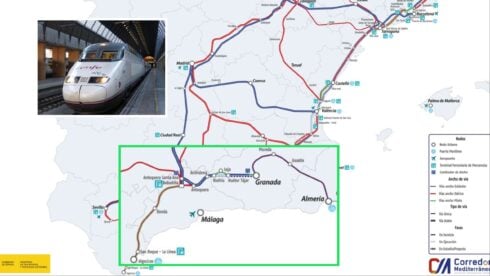HAVE you ever noticed that there are almost no bookies in Spain? (In areas where a lot of British people live, you will maybe find the occasional betting shop, but they are rare).
Horse-racing is more or less unknown (there is the ‘hippodromo’ horse track in Mijas, but that was more for the British, and in any case has been shut for years having run afoul of the Madrid-based jockey club, which controls racing at Spain’s very few tracks).
There are also two days of horse-racing on the beach in Sanlúcar, but that’s a tourist novelty.

If you talk to your Spanish friends about betting online (‘ten euros on Garnacho to take the next throw-in’), they’ll think you’ve lost the plot.
READ MORE:
- Young robbers steal from churches in Spain’s Costa Blanca and Murcia areas to pay for luxury hotel stays and gambling
- Spain issues €81million worth of fines to 17 online gambling sites – this is why
- Online gambling skyrockets among young people in Spain
Every Spanish town has its state lottery sales-point, (‘Loterías y Apuestas del Estado’) – and that’s the difference.
Betting, where it exists in Spain, tends to consist of buying a weekly lottery ticket. New statistics suggest that even this form of gambling is in decline – but a worrying trend for the Spanish is the way in which underage children are getting around the rules in order to bet online.
When asked, 20% of kids in the 14-18 age group say they have gambled in this way. Javier Padilla, the Spanish Minister of Health, has just published a government report on addiction. Some of the findings are interesting.
In the last year, 54% of Spaniards (aged 15-64) have gambled in one manner or another, which is a marked decrease from 2020, when the figure was 64%. Women gamble less than men (51.5% against 56%).
The concern is that young people are disobeying the law: 17.7% of teenagers say they have placed bets in person, and it’s a growing trend.
When it comes to online games of hazard, young people go for video games, but they also bet on sport and even dabble in crypto-currencies.
As for betting in person, youngsters imitate their elders, restricting themselves mostly to lotteries and bingo. British people have long recognised a psychological condition known as ‘compulsive gambling’. It exists in Spain too, of course, and bears the name ‘ludopatía’.
Both cultures are aware that easy access to the internet makes it easy for compulsive gamblers to indulge their habit. This is why the statistics distinguish between ‘face-to-face’ betting and the online variety.
In the 2020 survey, 64% of Spaniards admitted going to a casino, or buying a lottery ticket from a human vendor (ie, face-to-face). That number is now down to 53%.
Betting online is almost unknown among the Spanish population. Only 2.7% of all women say they have gambled in this way in the last 12 months, compared to 8% of men.
When broken down by age, the 25 to 34-year-olds are the growth area in online betting, whereas those between 55 and 64 years of age register only 2.5% (1 in 40) in the last year.
For Spanish people, the lottery remains by far the most popular form of gambling, with more than 90% participating (this figure is probably swollen by the “El Gordo” Christmas lottery, in which almost everybody participates). Some 31% of the population buys scratch cards or plays bingo.
Betting on sport is not common: less than 1 in 10 Spanish people do it. Perhaps a more relevant statistic is how much money people devote to games of hazard.
Almost everyone in Spain falls into the lowest bracket (between 6 and 30 euros a year): but 2% of the population admits to spending upwards of 300 euros per annum.
Did you know?
Big lottery wins in Spain are subject to tax. The Spanish tax authority (the ‘agencia tributaria’) takes a cut of any lottery or gambling win above a certain amount, with the rate of taxation rising, the more you win. In practice, it usually works out at a fifth of your winnings.
And here’s the worst part – the Spanish taxman doesn’t wait for you to write him a cheque. The tax is calculated and deducted before you get your winnings! It feels unfair, doesn’t it?
Click here to read more Spain News from The Olive Press.








